Related Research Articles
"I Still Love You" is a song by the Bee Gees primarily written by Barry, Robin & Maurice Gibb. It was released as a double A side of "Living Eyes" and on the album Living Eyes. Produced by the Gibb brothers with Albhy Galuten and Karl Richardson.

Now Voyager is the debut solo studio album by British singer-songwriter Barry Gibb, the member of the Bee Gees. It was released on 17 September 1984 by Polydor Records in the UK and MCA Records in the US. Now Voyager was recorded sometime around the year at Criteria Studios in Miami, Florida, and Ocean Way Recording in Hollywood, California, and was produced by Gibb and Karl Richardson. It contains his biggest solo hits, "Shine, Shine" and "Fine Line". The album also included the Olivia Newton-John duet "Face to Face", which was released as a promo single. Gibb co-produced the album with Karl Richardson, who had been working with the Bee Gees since 1975. The front cover photograph was taken by Alex Henderson at Victoria Baths, Manchester.

Living Eyes is the sixteenth studio album by the Bee Gees, released in 1981. It was the band's final album on RSO Records, which would be absorbed into Polydor and subsequently discontinued. The album showcased a soft rock sound that contrasted with their disco and R&B material of the mid-to-late 1970s; having become a prominent target of the popular backlash against disco, the Bee Gees were pressured to publicly disassociate from the genre.

"Shadow Dancing" is a disco song performed by English singer-songwriter Andy Gibb. The song was released in April 1978 as the lead single by RSO Records from his second studio album of the same name. The song reached number one for seven consecutive weeks on the Billboard Hot 100 in 1978. It was written by Andy and his older brothers, Barry, Maurice and Robin Gibb and Albhy Galuten arranged the song with Barry Gibb. While Andy Gibb would have three more Top 10 hits in the U.S., this would be his final chart-topping hit in the United States. The song became a platinum record.
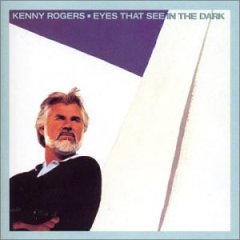
Eyes That See in the Dark is the fifteenth studio album by American country singer Kenny Rogers, released by RCA Records in August 1983.
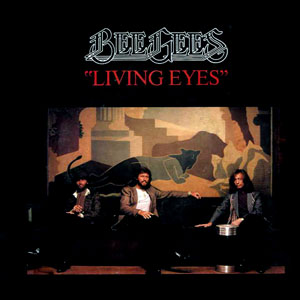
"Living Eyes" is a power ballad recorded by the Bee Gees and was released in November 1981 as the second single and title track off the LP of the same name. It was written by Barry, Robin & Maurice Gibb. The sound of this single was closer musically to the rest of the album than its predecessor, "He's a Liar".

After Dark is the third and final studio album by English singer-songwriter Andy Gibb. It features his last US Top 10 single "Desire", "I Can't Help It" and two Bee Gees numbers "Rest Your Love on Me" and "Warm Ride".

"Guilty" is a vocal duet between Barbra Streisand and Barry Gibb. The song was written by all three Bee Gees: Barry, Robin & Maurice Gibb. Released as a single from Streisand's 1980 album of the same name, "Guilty" peaked at No. 3 on the US Billboard Hot 100 chart and No. 5 on the adult contemporary chart. In the UK, the song reached No. 34 on the UK Singles Chart. The single was certified gold by the RIAA. In addition, "Guilty" won a Grammy Award in the category Best Pop Vocal Performance, Duo or Group. The song also appeared on the 2001 Bee Gees compilation, Their Greatest Hits: The Record.

Heartbreaker is a studio album by American singer Dionne Warwick. It was released by Arista Records on September 28, 1982, in the United States. Her fourth album with the label, it was largely written by the Bee Gees, and produced by band member Barry Gibb along with Karl Richardson and Albhy Galuten; Gibb and Galuten also served as musicians on the album. Warwick recorded the songs on Heartbreaker during the spring of 1982.
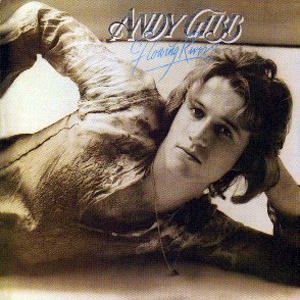
Flowing Rivers is the debut studio album by English singer-songwriter Andy Gibb. The album was produced by Albhy Galuten and Karl Richardson, with Barry Gibb on two tracks. It was released in September 1977 on RSO. Flowing Rivers was re-released by Polydor Records in 1998 in CD version.
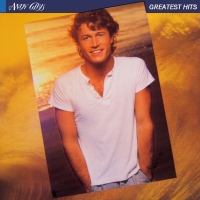
Andy Gibb's Greatest Hits was the first compilation album by Andy Gibb. It was released in 1980. Aside from the previous singles it also contains three new songs being "Time Is Time", "Me " and "Will You Love Me Tomorrow", the latter sung together with P. P. Arnold.

"Buried Treasure" is a song written by Barry, Robin & Maurice Gibb, and recorded by American country music artist Kenny Rogers. It was released as the B-side of "This Woman" in January 1984 as the third single from the album Eyes That See in the Dark. The song reached No. 3 on the Billboard Hot Country Singles & Tracks chart and No. 2 on the Canadian RPM Country Tracks chart.

"(Our Love) Don't Throw It All Away" is a song penned by Barry Gibb and Blue Weaver and recorded by the Bee Gees in 1977 on the Saturday Night Fever sessions but was not released until Bee Gees Greatest (1979). A different version was released in September 1978 by RSO Records as the third single by Andy Gibb from his second studio album Shadow Dancing. His version was produced by Gibb-Galuten-Richardson.

"Why" is a song written by Barry Gibb and composed by Andy Gibb, fourth and last single released on the album Shadow Dancing. Released as a single in September 1978 by RSO Records around the same time as "(Our Love) Don't Throw It All Away". It was his only single that was not charted in any countries. The song was produced by Gibb-Galuten-Richardson.
"Evening Star" is a song written by Barry and Maurice Gibb, and recorded by American country music artist Kenny Rogers. It was released in June 1984 as the third single from the album Eyes That See in the Dark. The song reached No. 11 on the Billboard Hot Country Singles & Tracks chart.
"This Woman" is a song written by Barry Gibb and Albhy Galuten and was performed by American country recording artist Kenny Rogers. It reached No. 2 in the US Adult Contemporary Chart and No. 23 in the US Pop Chart. It was published by Gibb Brothers Music and Unichappell Music.
"Paradise" is a pop ballad recorded by the Bee Gees included on the 1981 album Living Eyes. It was later released as a single in Netherlands and Japan with "Nothing Could Be Good" as the B-side. It was included on the 1983 greatest hits album Gold & Diamonds.
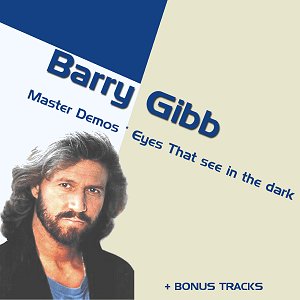
The Eyes That See in the Dark Demos is an album of demos by Barry Gibb created for the production of Kenny Rogers' 1982 album Eyes That See in the Dark. Originally circulating as a bootleg, the collection saw a legitimate release on iTunes in October 2006.

The Heartbreaker Demos is an album of demos by Barry Gibb created for the production of Dionne Warwick's 1982 album Heartbreaker. Originally circulating as a bootleg, the collection saw a legitimate release on iTunes in October 2006. The album does not include the non-Gibb composition from the album, "Our Day Will Come", or the songs "Oceans and Rivers", "Broken Bottles", "Never Get Over You" and "Stay Alone", which were demoed, but not used on the album.

"Eyes That See in the Dark" is a song written by Barry and Maurice Gibb in 1982. It was recorded by American singer Kenny Rogers for his 1983 album of the same name. It reached #30 on the US Country chart, #4 on the US Adult Contemporary chart, #61 in the United Kingdom and #79 on the Billboard Hot 100.
References
- 1 2 3 Joseph Brennan – Gibb Songs: 1983
- ↑ "Las canciones más populares en América Latina". La Opinión (Los Angeles) (in Spanish). December 12, 1983. Retrieved September 30, 2024.